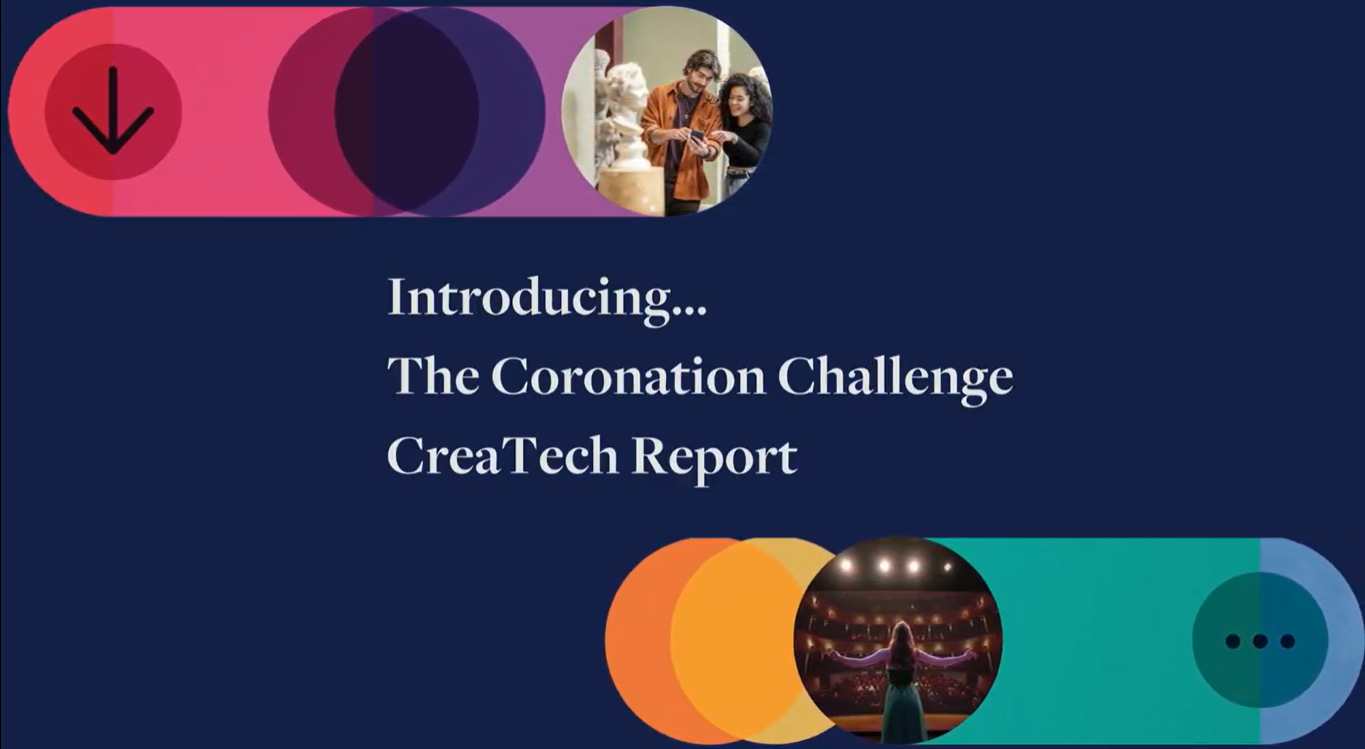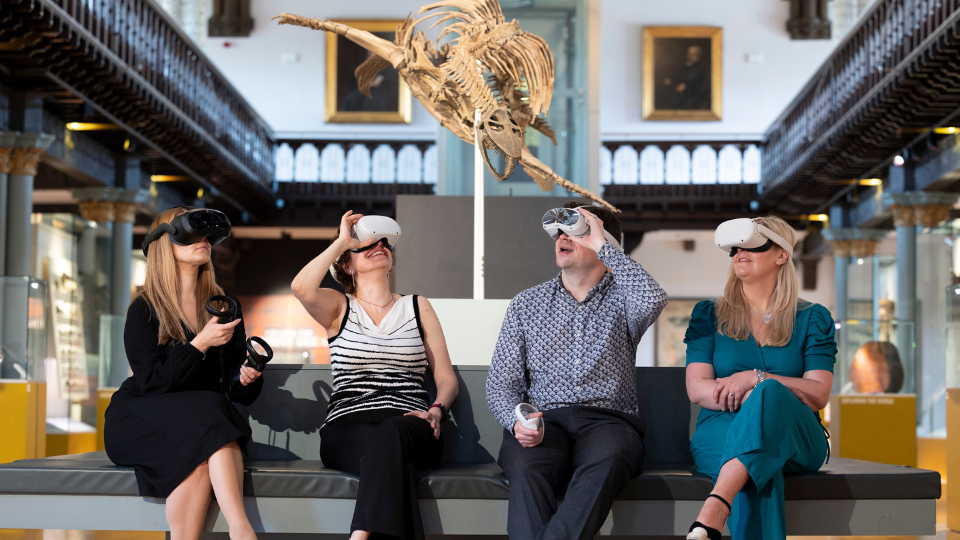
The Coronation Challenge
The Coronation Challenge, a research project led by the 2023 winners of the Queen Elizabeth Prizes for Education, explored how the fusion of emerging tech and the Creative Industries can transform the UK’s approach to skills, innovation and skills.
The Coronation Challenge CreaTech Report
Launched in 2024, the Coronation Challenge was a year-long research project commissioned by the Department for Culture, Media and Sport (DCMS) as part of the UK government’s Sector Vision Initiative, a landmark investment to stimulate growth in the Creative Industries. The research was led by the 2023 winners of the Prizes in partnership with industry practitioners, creative industry consultants Erskine Analysis and oversight from an expert Advisory Board chaired by Sir Damon Buffini.
The resulting report is focused on the intersection of creativity and technology — known as CreaTech — which is reshaping industries and presenting the UK with unparalleled opportunity for economic growth, innovation and global leadership.
The Coronation Challenge CreaTech report: How the fusion of emerging technologies and the Creative Industries can transform the UK’s approach to skills, innovation and business, was published on 10th February 2025.


The report concludes with recommendations for action.
Creative Industries Minister, Sir Chris Bryant MP responded: “The CreaTech report demonstrates how creativity and technology go hand in hand. We want our creative industries to be at the forefront of technological development so that the UK remains a global leader and one of the best places in the world to invest and do business. I look forward to working across government and with industry to address the report’s recommendations, so that we can drive economic growth in the sector, support good jobs, spread opportunity, and build a sustainable skills pipeline – all central to this government’s Plan for Change.”
Sir Damon Buffini, Chair of the Royal Anniversary Trust and Chair of the Coronation Challenge Advisory Board said: “This report is a call to action: the UK must claim its place as the global leader in CreaTech. As chair of BBC Studios and the National Theatre, I’ve witnessed the transformative impact of combining creativity with technology. It turns out that CreaTech is one of the UK’s most potent levers for economic growth, with the potential to generate an additional £18 billion in Gross Value Added (GVA) over the next decade and create 160,000 new jobs. We already have 350,000 professionals working in this space and 14,000 creative businesses leveraging emerging tech, but these numbers should — and must — grow exponentially if we are to lead globally. If we act boldly and ambitiously, the rewards could shape our economy, our society, and our standing in the world for decades to come.”

Recommendations
The report concludes with the authors’ five policy recommendations, summarised here:
[1.] Drive a CreaTech skills revolution
Education reform is needed to build a robust skills pipeline, starting with the integration of creative and technical subjects from primary to secondary school education and progressing through targeted, CreaTech-specific programmes in further and higher education.
[2.] Boost investment in CreaTech R&D
To support CreaTech’s continued growth, policymakers, industry and funders should together build a five year plan to substantially increase the level of public investment in R&D which supports the Creative Industries, in recognition of its position as a priority “growth-driving sector” in the government’s industrial strategy.
[3.] Transform the UK’s CreaTech capability by introducing a new CreaTech Catapult
A dedicated CreaTech Catapult would create a collaborative hub, fostering connections among creative businesses, educational institutions, and technology developers.
[4.] Leverage new private investment in CreaTech by supporting access to R&D tax reliefs
Evidence suggests that R&D tax reliefs may be underused by the Creative Industries. An active research pilot offering support to creative businesses wanting to apply for R&D tax reliefs would deliver a base of case studies that could inform future policies.
[5.] Create new funding mechanisms for scaling CreaTech businesses
To bridge the gap in later-stage funding, a government-backed Fund of Funds should be created, providing Series B+ investment for UK-based CreaTech companies.